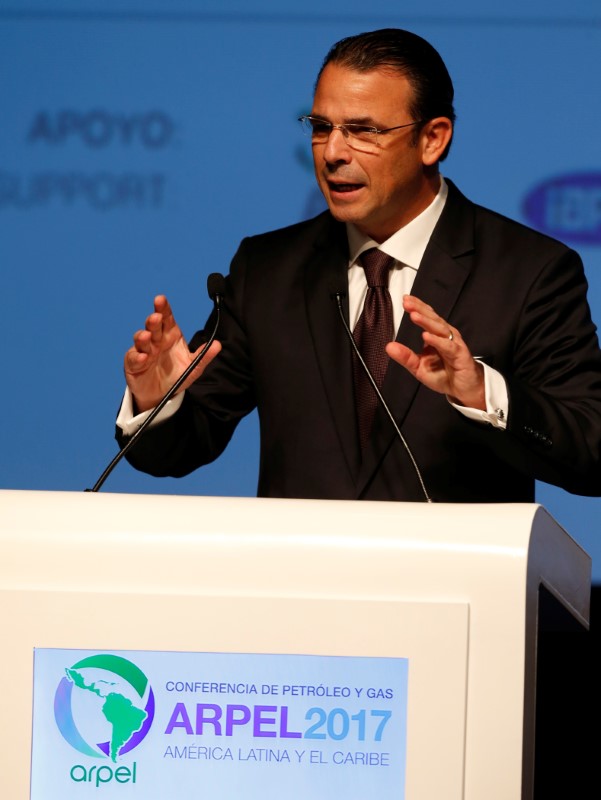By Alexandra Alper and Marianna Parraga
RIO DE JANEIRO/HOUSTON (Reuters) - U.S. oil producer Chevron Corp (N:CVX) has permanently assigned its Brazil country chief to run its Venezuelan operations after the months-long detention of two executives escalated tensions between the OPEC-member nation and foreign oil firms.
Javier La Rosa, who had been president of Chevron Brazil since 2016, this month was named president of Chevron Venezuela, the company confirmed on Friday. He replaced the company's Venezuela general manager, Christopher Whatley.
La Rosa joined Chevron in 2000 and had headed Venezuela operations for the company from 2005 to 2008, his LinkedIn (NYSE:LNKD) page said. He flew to Caracas shortly after Chevron employees were detained to temporarily lead the Venezuela unit, according to two other people familiar with the matter.
La Rosa's appointment comes after a tense showdown between foreign oil companies and the government in recent months as Venezuela's political and economic meltdown deepened.
Venezuelan authorities this week released the two executives jailed since April as part of an ongoing graft probe into the oil sector, which has unnerved other foreign companies operating in partnership with state oil company PDVSA.
The arrests, related to the executives' refusal to sign a supply contract for furnace parts for a PDVSA joint venture, were made public after some oil-service companies pulled back from Venezuela, writing off billions of dollars in assets.
La Rosa is leaving Brazil just as Chevron begins to flex its muscle in Latin America's largest crude oil producer. In a consortium with Petrobras (SA:PETR4) and Royal Dutch Shell Plc (L:RDSa), Chevron clinched its first block in Brazil's coveted offshore pre-salt oil play on Thursday.
It was not immediately clear who will run Chevron's Brazil operations.
Reuters reported in December that Chevron was in talks with oil services firm Schlumberger NV (N:SLB) to resume drilling in an offshore field after a 2011 oil spill there cut production.

Chevron, the world's seventh-largest publicly traded oil producer, with 2017 revenue of $135 billion, operates in Venezuela mostly through minority stakes in five projects. Its earnings from Venezuela dropped 18 percent last year to $329 million, according to regulatory filings.